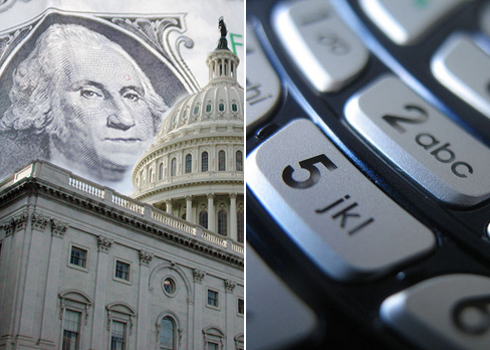A leading wireless trade association is requesting an opinion from the Federal Election Commission on whether it would be legal for political candidates to solicit donations via text message — a development which could have as much of an impact on the campaign finance business as it has on charities.
The nonprofit trade association CTIA – The Wireless Association filed a request this month for the FEC to determine whether it would be allowable to accept small contributions to federal candidates, parties and political committees of approximately $10 via Common Short Codes (CSC) — more commonly known as text messages.
In their filing, the company cites a January story in the New York Times about the change in charitable giving due to text message donations, including in the response to the earthquake in Haiti.
The trade association argues that because the donations are $10 (below the limit of $50 for anonymous contributions), they should not be required to forward any identifying information. However they propose sending a series of six text messages to users asking them to confirm that they were not making the donation on behalf of a corporation and that they would not be contributing more than $50 via text message per year.
But the association argues that the cost associated with developing and implementing additional safeguards — like automatically excluding political contributions from those easily identifiable as corporations or excluding payments from those with a foreign addresses — “could be too high for the wireless service providers and connection aggregators to profit.”
The fewer additional burdens imposed by the FEC, the more likely wireless companies will be able to provide the services to federal candidate, party and political committees, they write.









